42 how to read labels on food packages
Easy Guide to Understanding Food Labels When You Have High ... - MyDoc Food labels tell you what is in the food and drinks you are consuming. Every packaged and processed product should have a food label to help you determine its nutrition content. The food labels can help you sieve through misleading claims, shop faster and make better food choices to lower your cholesterol levels. Reading Food Labels and Understanding Packaging Claims Read this! Parents Gude and Facts To Understanding Food Labels All food manufacturers are required by law to provide specific information about the food your are buying to help you make informed healthy decisions. But of course, you have to read the food label first. General overview to help parents nderstand what is a food label.
How To Read Food Labels - 10 Tips - Pritikin Weight Loss Resort Try to avoid foods with added, refined caloric sweeteners in the first three to five ingredients. Because ingredients are listed in descending order of weight, the lower down the label you find added sugars, the better. 10. Make sure that any grain is WHOLE grain, such as whole-wheat flour.
How to read labels on food packages
Understanding Food Labels | The Nutrition Source | Harvard T.H. Chan ... Under the Food Allergen Labeling and Consumer Protection Act of 2004, eight major food allergens—milk, fish, tree nuts, peanuts, shellfish, wheat, eggs, and soybeans—are required to be listed in a "contains" statement near the Ingredients list if present in a food. An example would be "contains wheat, milk, and soy." Reading food labels: Tips if you have diabetes - Mayo Clinic Reading food labels can help you make the best choices. Start with the list of ingredients When you're looking at food labels, start with the list of ingredients. Keep an eye out for heart-healthy ingredients, especially those that are less processed, such as whole-wheat flour, soy and oats. Reading Food Packages and Nutrition Labels: Tips for Savvy Shopping Although the Nutrition Facts label no longer includes calories from fat, you can find that out yourself with a few calculations. A gram of fat equals 9 calories, so first multiply the total grams of fat by nine. Divide that number by the total calories. Multiply the result by 100 to find the percentage.
How to read labels on food packages. 10 Rules For Reading a Food Label - YouTube The basics for understanding a nutrition label are important for every person to know. This video presents clear rules to properly read a food label. This vi... Food Labels Guide & Examples | How to Read Nutrition Labels - Video ... Food labels are read most easily from top to bottom and left to right. From top to bottom, food labels identify the following information: Servings per container and serving sizes Calories per... Food labels - NHS Some front-of-pack nutrition labels use red, amber and green colour coding. Colour-coded nutritional information tells you at a glance if the food has high, medium or low amounts of fat, saturated fat, sugars and salt: red means high amber means medium green means low In short, the more green on the label, the healthier the choice. How to Read a Food Label - The New York Times Take a package off the shelf and on its face you're likely to see: The brand of the product, telling you what company produced it. A name for the product — what is the thing you're holding,...
FDA's plan to define "healthy" for food packaging: Do we really need it? Doing all this, the FDA says, would align "healthy" with the 2020-2025 Dietary Guidelines for Americans and with the Nutrition Facts label that is printed on food packages. How to read food labels | healthdirect Nutrition Labels: Front of Food Packages Help? - healthline.com Lon Ben-Asher, MS, RD, LD/N, a nutritionist at Pritikin Longevity Center in Florida, told Healthline putting the nutritional labels on the front of the package is a step in the right direction.... How to read and understand a nutrition label - CNET Bold text vs. indented text. Bold text on a nutrition label will give you a top-level overview of the nutritional values, and the indented text beneath that breaks it down further. So "Total Fat ...
How to Read the Nutrition Facts Label on Packaged Foods - WebMD Most of it is in packaged foods and restaurant items. Limit salt to 2,300 milligrams (about 1 teaspoon) daily. If you have high blood pressure, kidney disease, or diabetes, or are African-American... Food Labels | CDC - Centers for Disease Control and Prevention Check the Serving size first. All the numbers on this label are for a 2/3-cup serving. This package has 8 servings. If you eat the whole thing, you are eating 8 times the amount of calories, carbs, fat, etc., shown on the label. Total Carbohydrate shows you types of carbs in the food, including sugar and fiber. The Right Way to Read an Ingredient List & Nutrition Label For example, if a serving size is 2/3 cups and the package states 8 servings per container that means you have enough in the package of food to eat 2/3 cup's worth 8 times (because of the 8 servings per container). If, for example, you ate more than 2/3 cup at a time then it would mean you would eat the package of food in less than 8 servings. How-To Guide for Reading Food Labels - The Society for Cardiovascular ... Therefore, when a food label indicates "0 grams of trans fat," that's ideal. However, even then a product may still have some trans fat. Manufacturers are allowed to list "0 grams" of trans fat if the product has less than 0.5 grams of trans fat per serving. Some examples are tub margarines or peanut butter.
Label reading 101 - Healthy Food Guide Step 1: Check front-of-pack claims. Manufacturers often use clever wording like 'low in salt' and '97% fat free', but there are lots of rules surrounding nutrition claims. For instance, a 'low-salt' food must have no more than 120mg of sodium per 100g. A food claiming to be '97% fat free' must have a maximum of three per cent fat.
How To Read Food and Beverage Labels - National Institute on Aging How to read the Nutrition Facts label The U.S. Food and Drug Administration (FDA) requires a Nutrition Facts label on most packaged foods and beverages. At the top of the Nutrition Facts label, you will find the total number of servings in the container and the food or beverage's serving size.
3 Ways to Read Nutrition Facts on Food Labels - wikiHow Life 4. Aim to consume under 60% of your daily value in sodium. 20% of your daily value in sodium (per serving) is considered high. This means that with 3 meals in a day, you should keep your sodium intake under 60%. If you can't, try to avoid exceeding 100% of your daily value (2,300 milligrams).
Food Labeling & Nutrition | FDA Food labeling is required for most prepared foods, such as breads, cereals, canned and frozen foods, snacks, desserts, drinks, etc. Nutrition labeling for raw produce (fruits and vegetables) and ...
Understanding Food Nutrition Labels | American Heart Association 1 - Start with the serving information at the top. This will tell you the size of a single serving and the total number of servings per container (package). 2 - Next, check total calories per serving and container. Pay attention to the calories per serving and how many calories you're really consuming if you eat the whole package.
How to Read a Package Label | Ask Dr Sears Multiply this number by the serving size and it should equal, or come close to, the total volume of the package. CALORIES This line tells you the number of calories per serving. Remember to adjust this (and other nutrient amounts, too) if your idea of a serving size is different from that stated on the package.
How to Read Food Labels Without Being Tricked - Healthline How to Read Food Labels Without Being Tricked Look on the Back Ingredients List Serving Sizes Misleading Claims Names for Sugar Bottom Line Reading labels can be tricky. Consumers are more...
5 Tips from an Expert on How to Read Food Labels - FoodPrint The next step is choosing grassfed, looking for a label like "Certified Grassfed by AGW" or "PCO Certified Grassfed." "The nutrient density and fatty acid profile of [milk and beef] is much better when you finish cows on grass, rather than corn [which is typical in industrialized animal production]," Urvashi explained.
Food Label Claims: What You Can and Can't Trust - WebMD Here's how to decipher food nutrition labels. ... Make a habit to read the box on the back of the package. You can learn a lot if you know what to check for. ... "Reading Food Labels."
How to Understand and Use the Nutrition Facts Label | FDA - U.S. Food ... When looking at the Nutrition Facts label, first take a look at the number of servings in the package (servings per container) and the serving size. Serving sizes are standardized to make it easier...
Learning To Read Labels :: Diabetes Education Online On a nutrition food label, subtract the fiber from the total carbohydrate amount. When you read food labels, the grams of sugar are already included in the total carbohydrate amount, so you do not need to count this sugar amount separately. The grams of sugar listed include both natural sugars, from fruit or milk, and added sugars.
Reading Food Packages and Nutrition Labels: Tips for Savvy Shopping Although the Nutrition Facts label no longer includes calories from fat, you can find that out yourself with a few calculations. A gram of fat equals 9 calories, so first multiply the total grams of fat by nine. Divide that number by the total calories. Multiply the result by 100 to find the percentage.
Reading food labels: Tips if you have diabetes - Mayo Clinic Reading food labels can help you make the best choices. Start with the list of ingredients When you're looking at food labels, start with the list of ingredients. Keep an eye out for heart-healthy ingredients, especially those that are less processed, such as whole-wheat flour, soy and oats.
Understanding Food Labels | The Nutrition Source | Harvard T.H. Chan ... Under the Food Allergen Labeling and Consumer Protection Act of 2004, eight major food allergens—milk, fish, tree nuts, peanuts, shellfish, wheat, eggs, and soybeans—are required to be listed in a "contains" statement near the Ingredients list if present in a food. An example would be "contains wheat, milk, and soy."
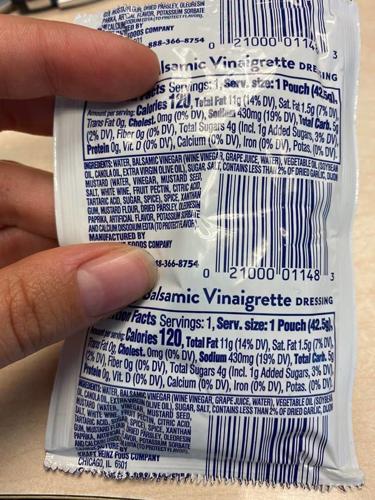


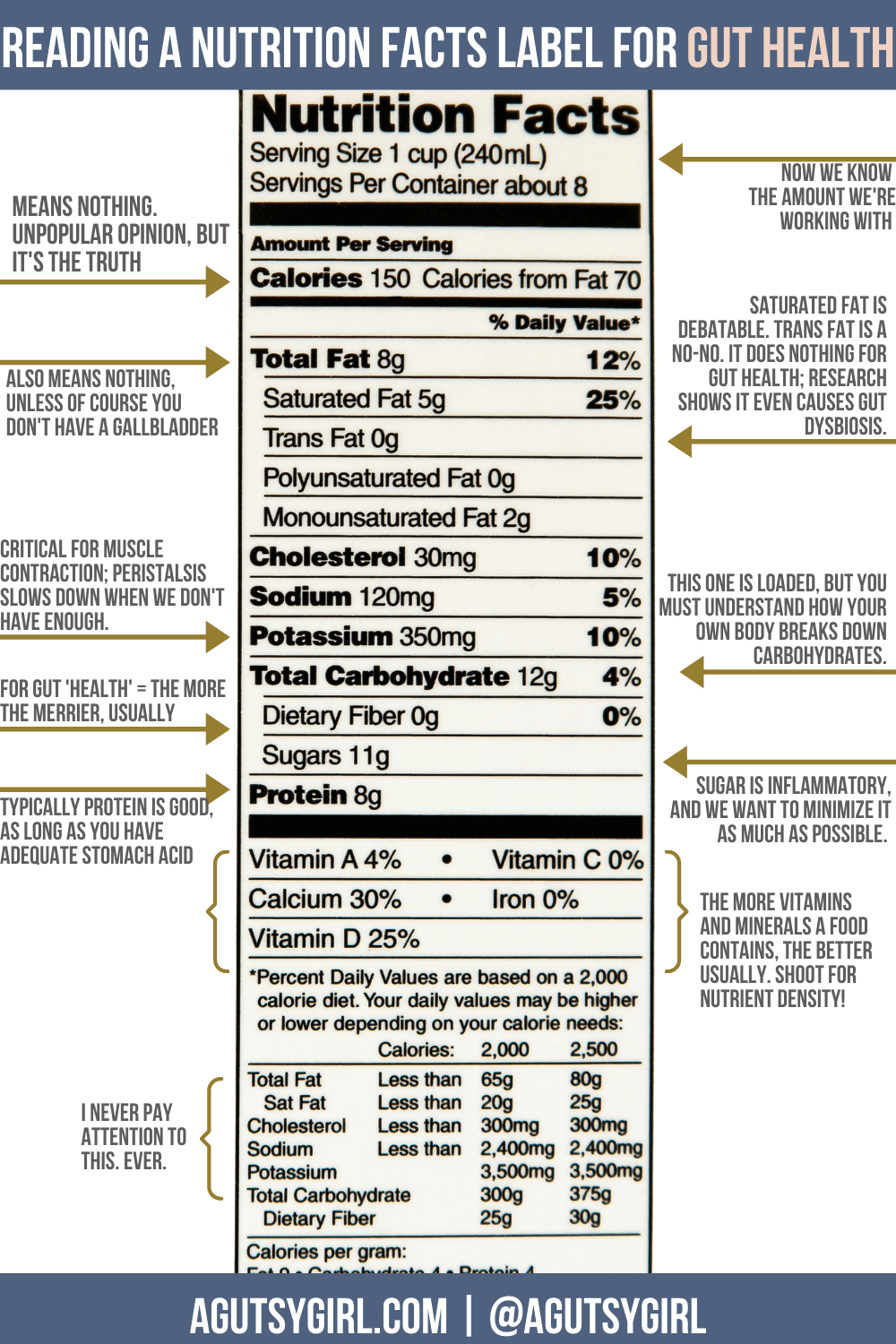

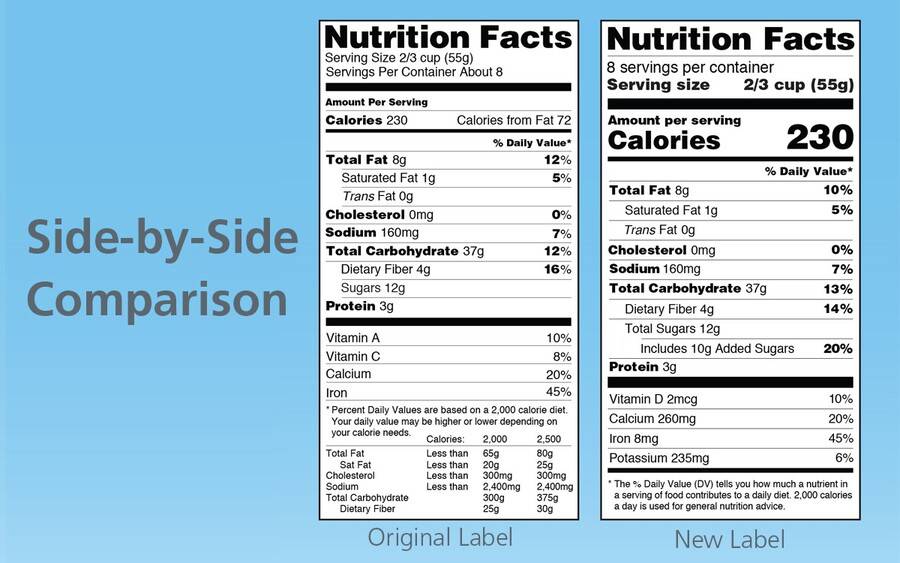
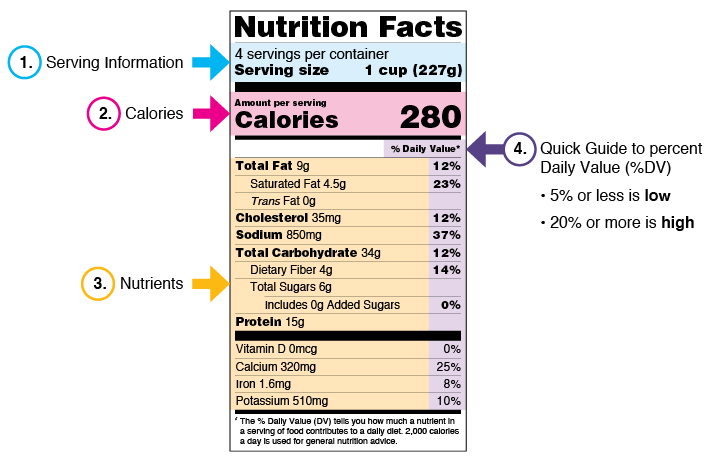
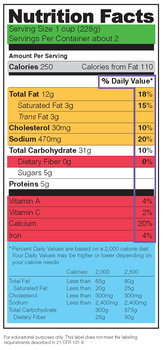
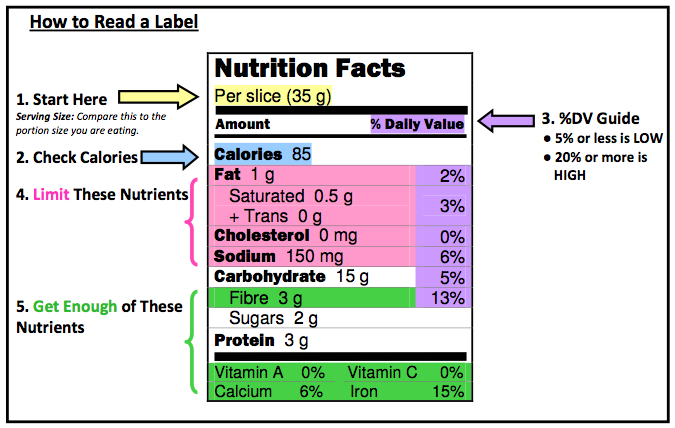
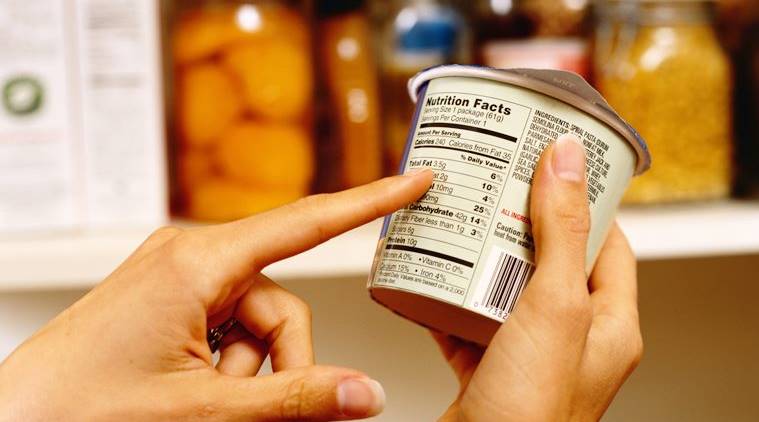

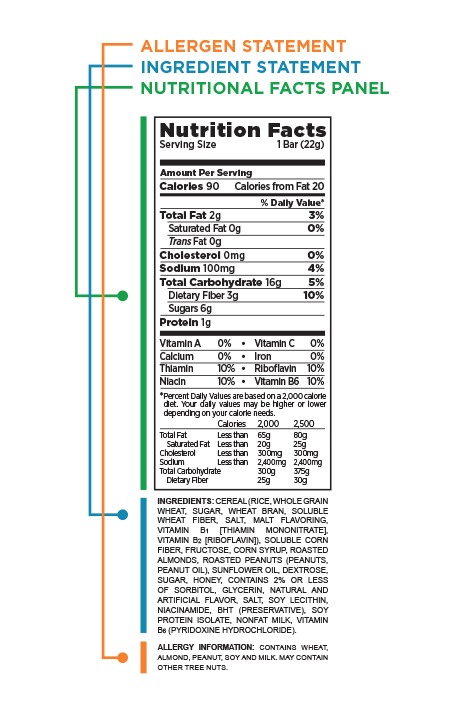

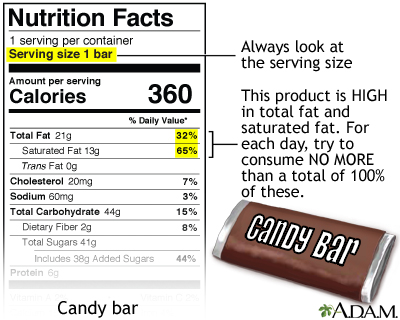
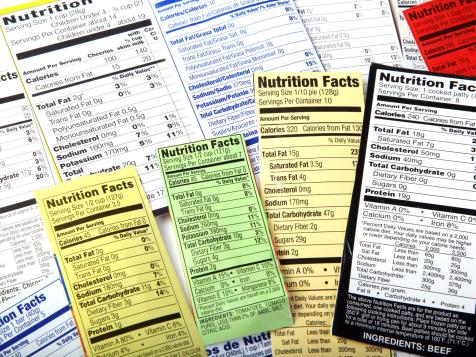
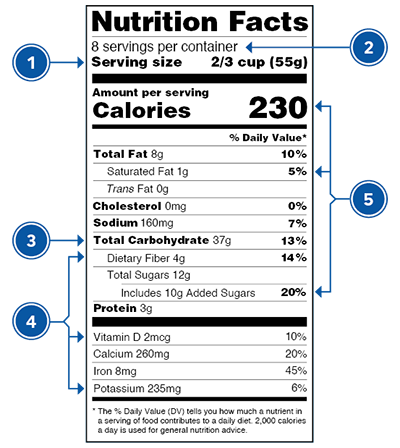
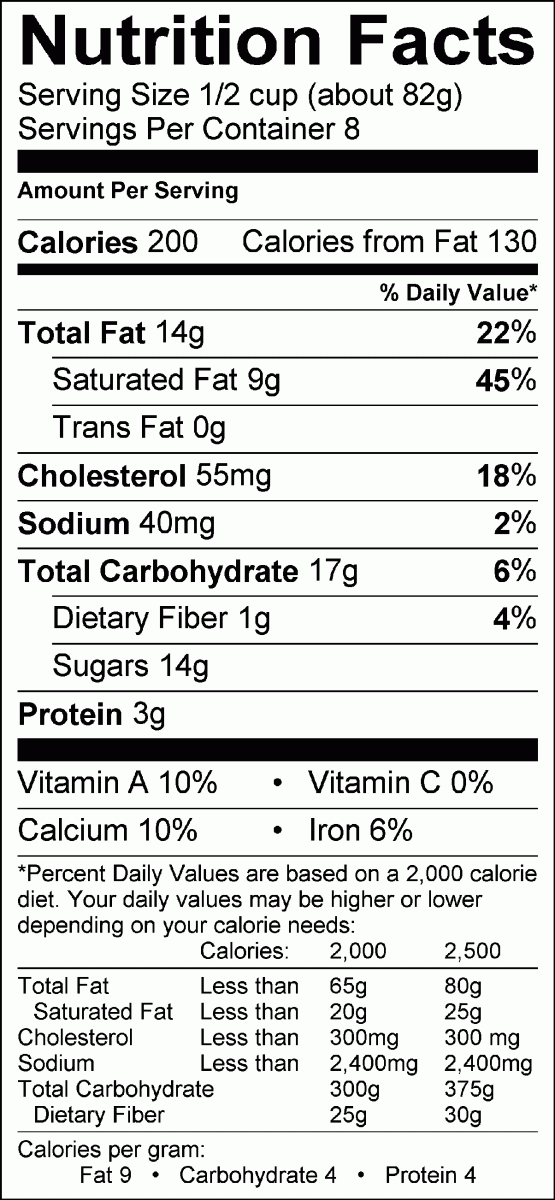


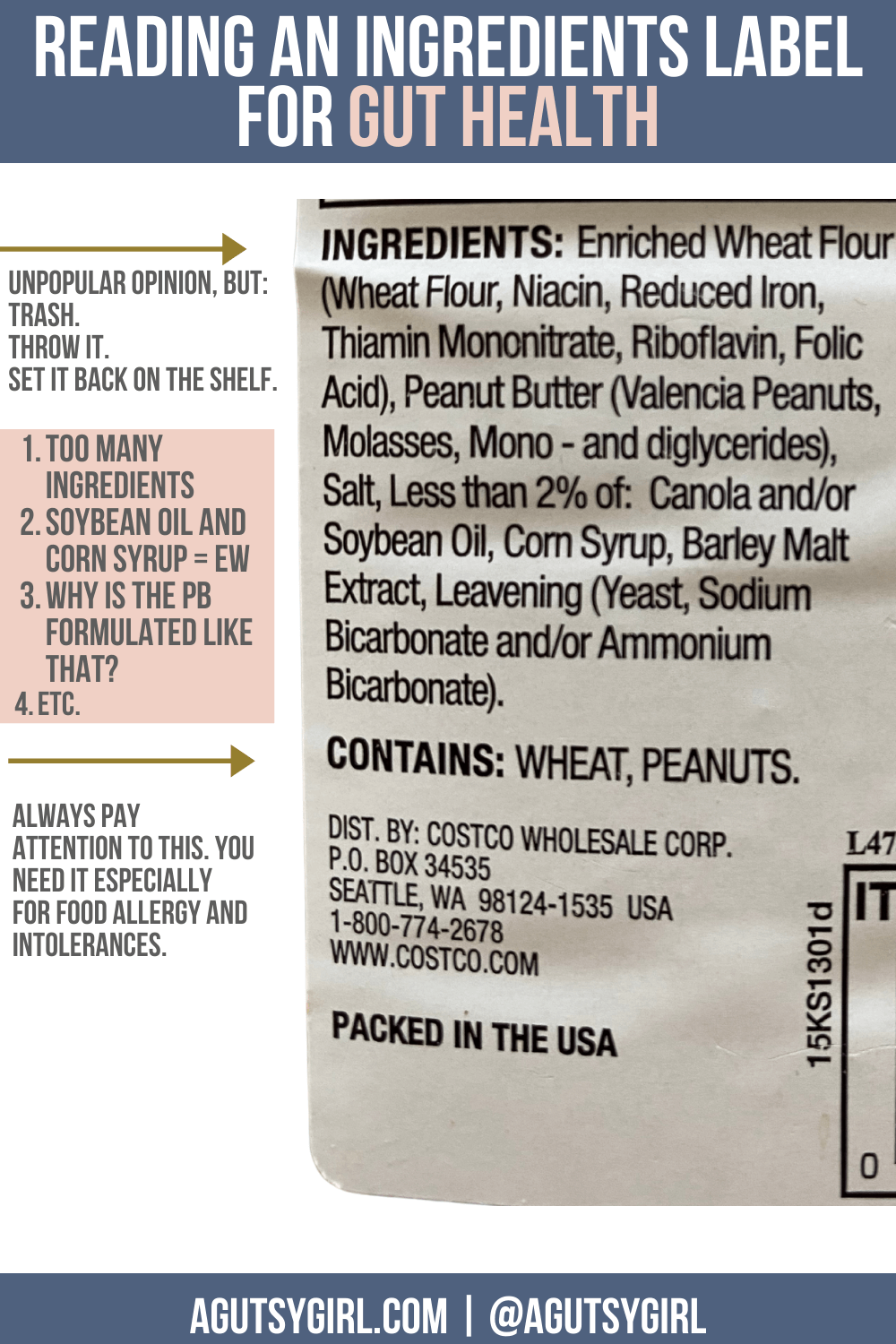
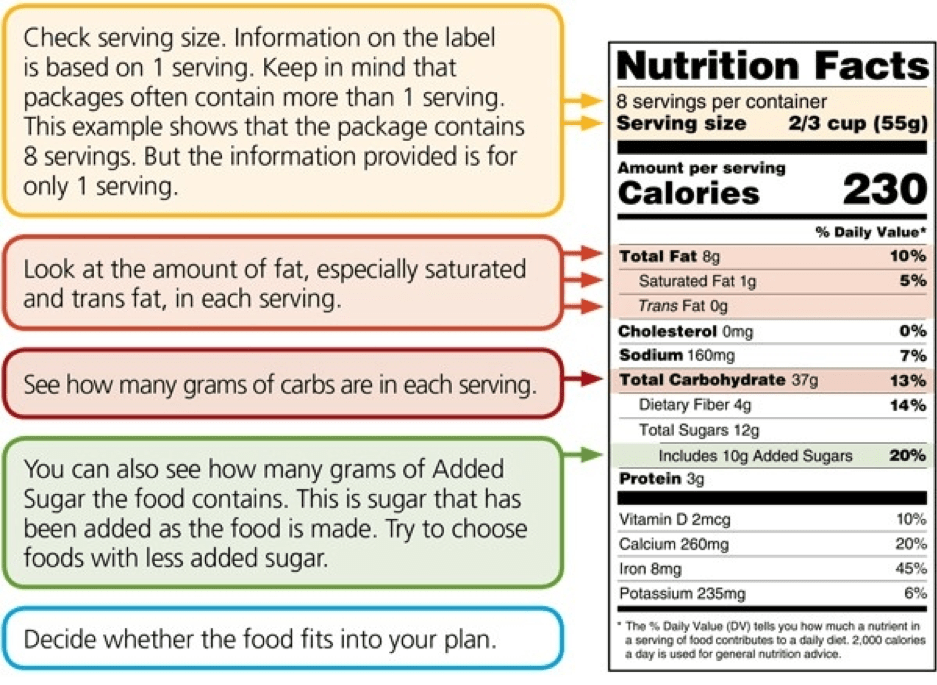

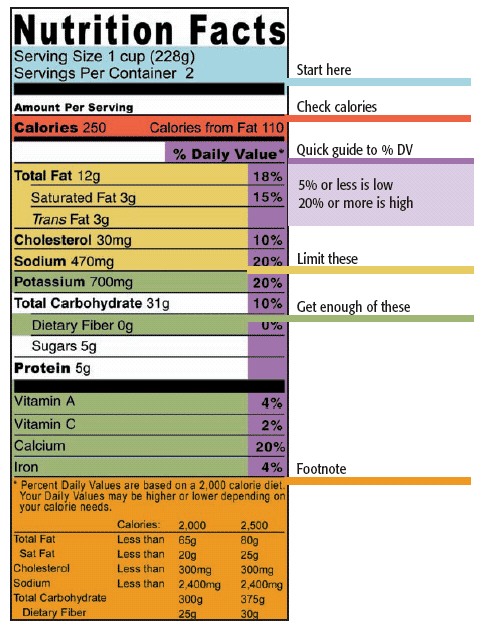




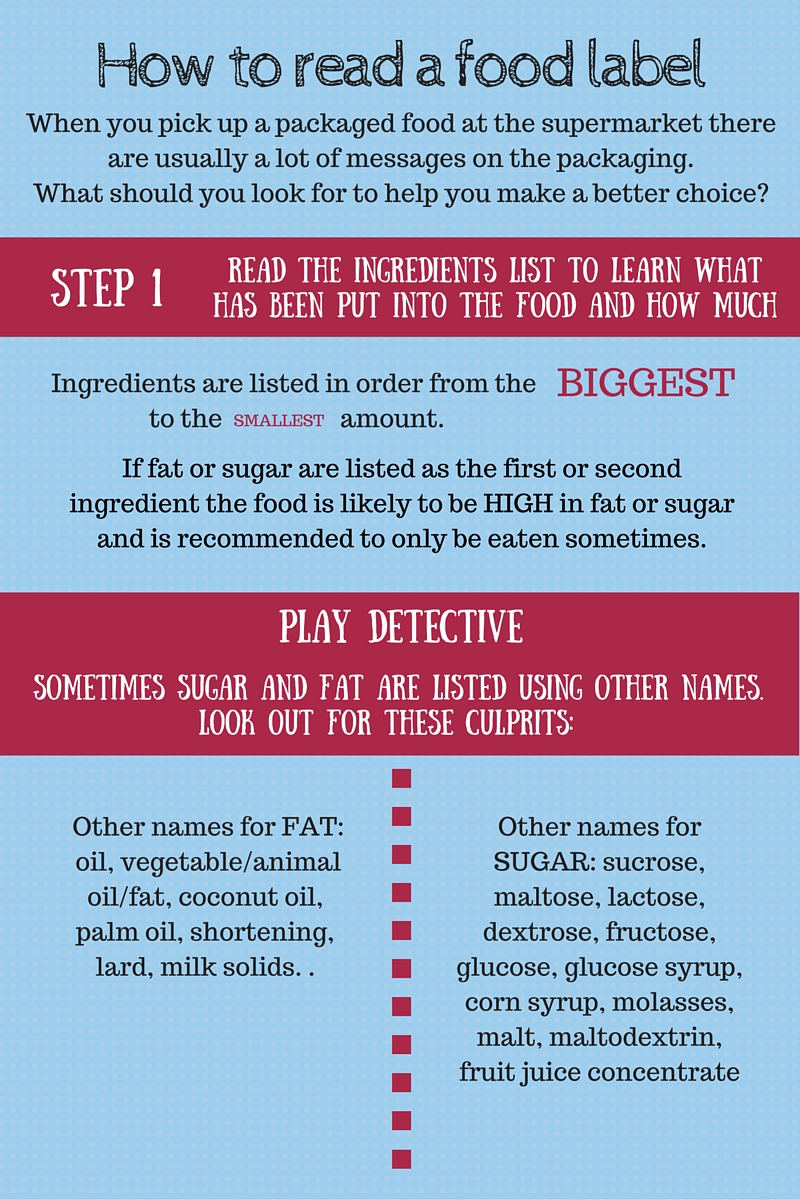

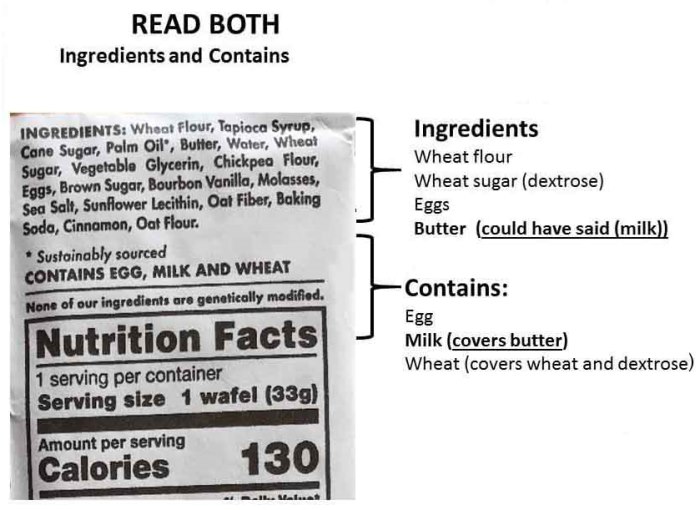
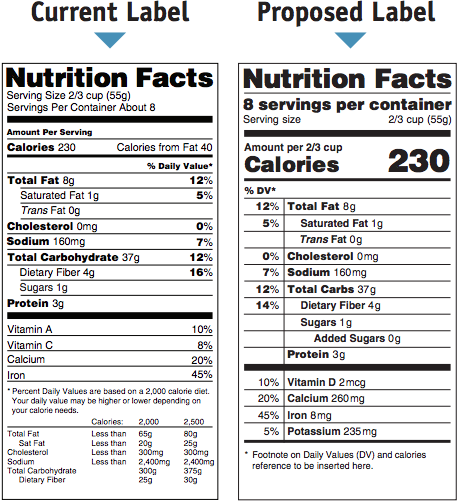
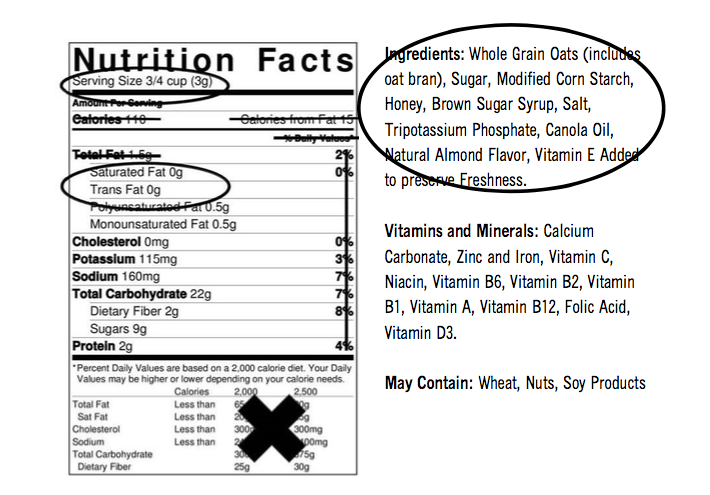

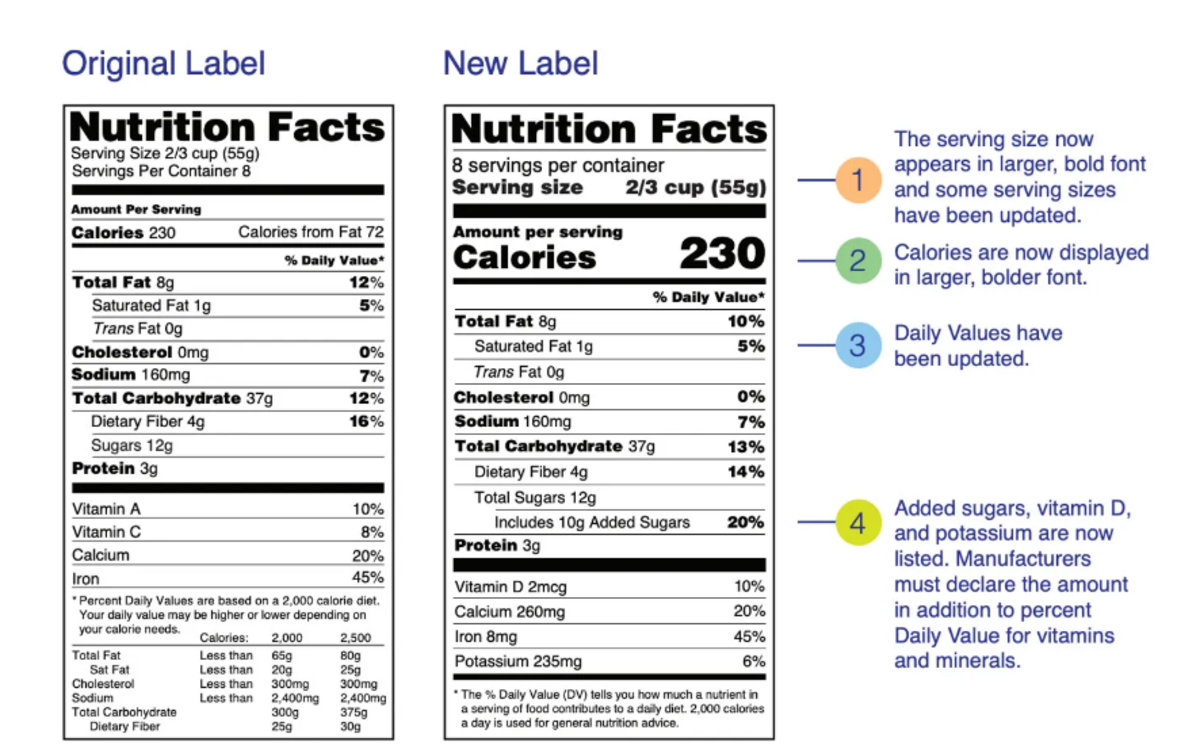
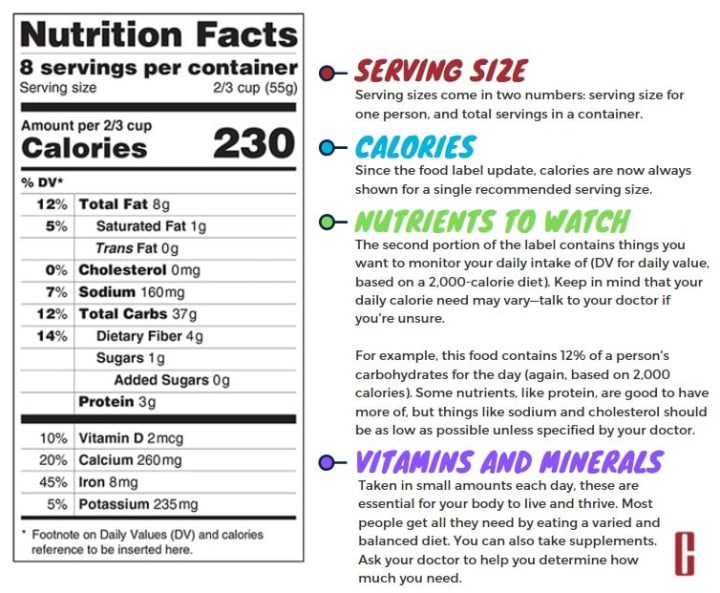
Post a Comment for "42 how to read labels on food packages"